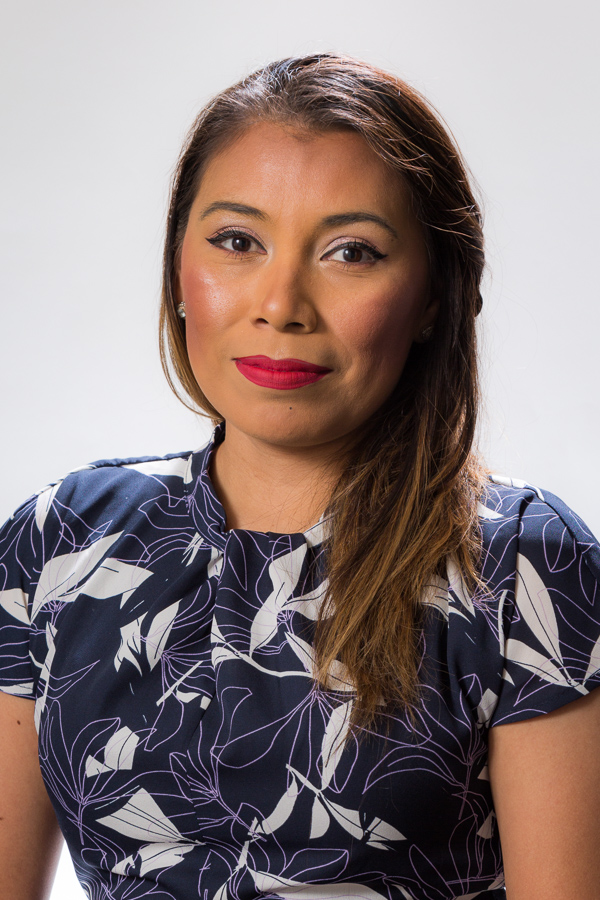
Lucinda Holt, an instructor in the College of Media & Communication, discusses how her experiences shaped her journalism career and led her back to the College.
When her sister, Lydia “Yaya” Mendez, was suddenly killed by a drunk driver in 2003, Lucinda Holt's life was forever altered.
“Anything can change in an instant. That's kind of my life motto ever since that accident,” Holt said. “You have to prepare for the unexpected; you never know what's going to happen, and you never know what life has in store for you.”
Now an instructor in the Department of Journalism & Creative Media Industries in the College of Media & Communication at Texas Tech University, Holt's career began after graduating from CoMC with a B.A. in journalism in 2014. She set out to become an accomplished freelance journalist, and her work was soon published in The New York Times and Reuters.
However, Holt's passion for newswriting started long before she entered the field.
Her father, a family man who worked as a migrant worker in the cotton fields, first sparked Holt's interest in journalism. He educated himself and others through the daily newspaper and regularly quizzed Holt on current news.
“I remember sitting at the table, tired from school,” Holt said. “I knew I'd have to answer my dad's questions on current events and that wasn't a lot of fun, but looking back at how it shaped me, I'm very appreciative now.”
Originally from Southland in Garza County, Holt graduated high school with only ten others in her class.
“I always knew journalism was my thing,” she said. The school didn't have a newspaper, so Holt helped create one. “That was the first big indicator that I was ready to go into a career in journalism.”
According to Holt, there are significant benefits that come with being a reporter, including opportunities for unique experiences and self-autonomy.
“The great thing about journalism is if you don't like your job, you can change it,” she said. “You choose what you do and who you want to be in the newsroom. You can sit at your desk and work a nine- to-five or you can get out and start knocking on doors.”
For example, Holt enjoys long-form reporting.
“I really enjoy writing feature pieces,” she said. “A lot of people struggle with crime stories, but I like them because they help bring families closure.”
Holt returned to the College of Media & Communication to earn her master's degree in mass communication, and in 2019, was hired as an instructor for the College. Holt currently teaches three courses – MCOM 2320 (Writing for Media and Communication), JOUR 3312 (Reporting) and JOUR 4350 (Multiplatform News Delivery).
In addition to training the next generation of journalists, Holt continues to work as a freelancer for The New York Times. A typical day for her involves keeping up-to-date on current news events and figuring out how to incorporate them into her classes.
“When I wake up, I start checking emails right away. I look at what happened overnight on social media; that's something that became a habit from the newsroom,” she said. “You can't teach journalism if you don't know what's going on.”
Integrating past work experiences and professional connections enables Holt to support student journalists with resources and a safe space to practice their craft. As an instructor, Holt gives her students both tools and opportunities to become better communicators.
Holt arranges hands-on experiences for her classes such as mock press conferences with City of Lubbock Police Department public information officers to discuss ongoing cases. She also invites speakers to the classroom (such as Lubbock Avalanche-Journal Court Reporter Gabriel Monte) who share a look inside the life of media professionals.
“When [students] see the responsibility that comes with reporting and investigating, that is rewarding,” Holt said.
Being a journalist can also mean a lot of hard work. According to Holt, one of the tougher aspects of the industry is the 24-hour news cycle that demands constantly updated news.
To meet this goal, reporters may work closely with local agencies to ensure damage control and reduce the risk for the spread of inaccurate information.
“It creates this pressure [for reporters] to get information out quickly because everybody has a cellphone,” she said. “If you don't get it out fast, you have the public posting photos. So, you have to get the story out factually and respectfully in a timely manner.”
Holt believes it is critical that she offer more than coursework to teach students how to first identify a story worth telling and then how to write an article worth reading.
“Students need to notice when moral and ethical issues arise and how to deal with them,” she said. “A lot of people think journalism and print are dying, but they're actually transforming and we need to stay on top of it.”
To anyone interested in a career in journalism, Holt offers this advice:
“I would highly encourage them to just go for it,” she said. “Whether you're a writer or not, if you have the soul of a storyteller, go for it. In journalism, you learn something new every single day, and no day is the same.”
“I've done everything from hanging out on the back of a plane doing a nap-of-the-earth flight to gearing up as firefighter for a day. I've had a lot of fun as a journalist,” Holt said. “I'm very lucky to have all these experiences under my belt and I'm excited to share them with my students.”
Although the opportunity to share her sister's story never came, she has taken it upon herself to voice her sister's story and to tell the stories of all affected by situations.
Her sister would be proud of her.
